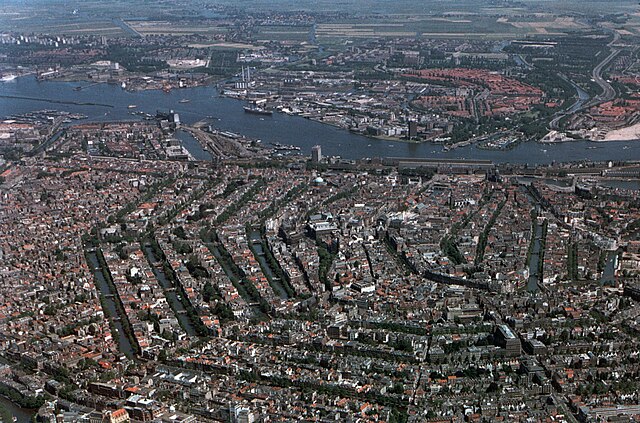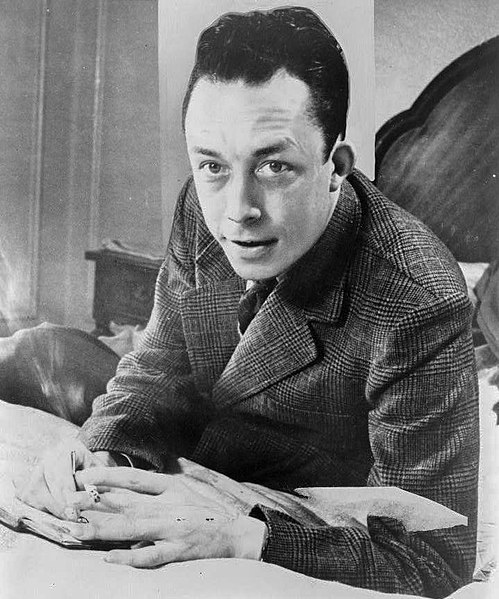The Fall is a philosophical novel by Albert Camus. First published in 1956, it is his last complete work of fiction. Set in Amsterdam, The Fall consists of a series of dramatic monologues by the self-proclaimed "judge-penitent" Jean-Baptiste Clamence, as he reflects upon his life to a stranger. In what amounts to a confession, Clamence tells of his success as a wealthy Parisian defense lawyer who was highly respected by his colleagues. His crisis, and his ultimate "fall" from grace, was meant to invoke, in secular terms, the fall of man from the Garden of Eden. The Fall explores themes of innocence, imprisonment, non-existence, and truth. In a eulogy to Albert Camus, existentialist philosopher Jean-Paul Sartre described the novel as "perhaps the most beautiful and the least understood" of Camus' books.
Cover of the first edition
Amsterdam
Copy of the panel from the Ghent Altarpiece known as The Just Judges by Jef Van der Veken. The original was stolen in 1934 and never recovered.
Albert Camus was a French philosopher, author, dramatist, journalist, world federalist, and political activist. He was the recipient of the 1957 Nobel Prize in Literature at the age of 44, the second-youngest recipient in history. His works include The Stranger, The Plague, The Myth of Sisyphus, The Fall and The Rebel.
Portrait from New York World-Telegram and Sun Photograph Collection, 1957
A 20th-century postcard of the University of Algiers
Albert Camus's gravestone
The bronze plaque on the monument to Camus in the town of Villeblevin, France. Translated from French, it reads: "From the General Council of the Yonne Department, in homage to the writer Albert Camus whose remains lay in vigil at the Villeblevin town hall on the night of 4 to 5 January 1960"







